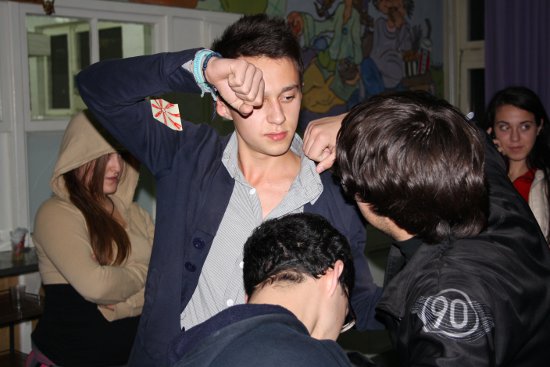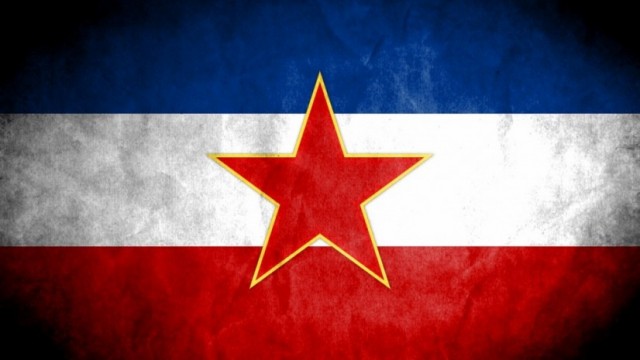Peace education for the culture of peace in Macedonia
Although the wars have passed, the need for peace education in the former Yugoslavia remains more pertinent than ever. The First Children’s Embassy in the... Read More
Confronting the Yugoslav controversies – a scholars’ initiative
TransConflict is pleased to announce that, every Friday, it will be presenting extracts from ‘Confronting the Yugoslav Controversies: A Scholars’ Initiative (Second Edition)’. Charles Ingrao,... Read More
On-line journalism – fostering a spirit of intolerance?
With on-line journalism increasingly fostering a spirit of intolerance and unaccountability, more effective regulation - including the licensing of on-line journalists - needs to be considered as a potential remedy to hate speech on-line.
The former Yugoslavia’s language conundrum
Whilst nationalism continues to rear its head in the former Yugoslavia, so language will continue to act as a divisive, as opposed to unifying, force.
Turkey – a welcome return to the Balkans?
Though Turkey - which is seeking to re-build its once flourishing Ottoman-era ties with most Balkan states - is increasingly portrayed as a reliable business partner, rather then an aggressive and neo-imperialist player, further steps are required to ease anxiety towards its policies.
Macedonia and Greece – back to square one?
Despite the ICJ ruling that Greece had breached its obligation under the 1995 Interim Accord, the dispute is back to square one, with few signs of genuine interest to find a lasting resolution.
Quo vadis, Serbia?
Despite Europe’s general loss of interest in further expansion, Serbia's state of aporia keeps it riveted to the European Union; leaving the country without a road, much less a roadmap.
Leveraging weakness
Faced with outstanding conflicts over sovereignty in the Western Balkans, the EU's most efficacious strategy depends upon acknowledging and leveraging its own considerable limitations as an international actor.
Recognising every casualty of armed violence
TransConflict has become a signatory to the Charter for the Recognition of Every Casualty of Armed Violence, which has at its core a simple principle that ‘no person should die unrecorded’.
More Europe in the Southeast is the answer?
Whilst imploring aspiring members to embrace its own system and values, the EU's selectiveimplementation of standards - depending on the case and context - means that countries of the region, particularly the Republic of Macedonia, should be cautious about accession.
Greece – Balkan dissonance and the creation myth of “Europe”
Reeling European governments and the Brussels bureaucracy will become even less patient than before in dealing with a region where their serial failures to enforce their myth of civic identity and multi-ethnic integration have undermined the narrative of Europe as a united, just, effective and relevant international actor.
Macedonia – time to contemplate genuine coexistence
With incumbent prime minister, Nikola Gruevski, having secured his third consecutive election, thereby confirming his and his party's hegemony over Macedonia's politics, it is now time to contemplate how a genuine system of coexistence can be built.
Euro-Atlantic integration of the Western Balkans
A recent conference explored some of the main obstacles - deriving from both internal and external sources - that the Western Balkans faces as it integrates into Euro-Atlantic structures.
Emerging from the margins
Constructing creative and useful approaches to both former Ottoman peripheries - the Balkans and the Middle East - requires shedding tattered notions of Western “leadership” and recognizing opportunities inherent in the acknowledgement of one’s own limits.
Cross-border cooperation in the Western Balkans – roadblocks and prospects
Whilst business-related initiatives continue to drive regional and cross-border cooperation, politics and implementation capacity have failed to live-up to the standards expected by the plethora of international bodies engaged in strengthening this key area.
Forwards or backwards? – assessing the EU's enlargement agenda
A selection of key findings from the 2010 progress reports for Croatia, Bosnia and Herzegovina, the Former Yugoslav Republic of Macedonia (FYRoM), Kosovo (under UNSCR 1244/99), Montenegro and Serbia.
The Greek-Macedonian name dispute – good-neighbourly relations?
Greece’s continued violation of bilateral and international agreements with respect to Macedonia calls into question its commitment, and that of the international community, to good-neighbourly relations in the Western Balkans.
Thinking beyond the crisis? Greece and the Balkans
Recent developments – particularly a proposal to recognize Macedonia as the ‘Republic of Vardar Macedonia’ - have demonstrated that, contrary to the fears of some, the debt crisis will not impede Greece’s capacity for resolving regional disputes.
The economic crisis, Greece and the Balkans
The economic crisis – which has eroded the EU's solidarity and diluted its appetite for further enlargement – will serve to fuel populism and undermine the resolution of outstanding conflicts in the Balkans.
The way forward? Grassroots diplomacy in the southern balkans
Grassroots involvement in conflict transformation is key to overcoming the prejudice and mistrust that lies at the centre of many of the current problems facing the southern Balkans.
The Greek-Macedonian dispute – time to return to the drawing board?
Facilitating a compromise between the respective parties to the name issue requires a better understanding of the multi-layered character of the dispute, the historically conditioned perspectives of the parties, and the main actors and their perceived interests.
The EU should offer more than just a box of chocolates
Speeding-up the integration of the Western Balkans into the EU will require the creation of new momentum through greater financial investment and the deployment of individuals with significant political and diplomatic clout.
Three good ways to end 2009 in the Western Balkans
Three key decisions at the end of 2009 – visa liberalization, Serbia’s application for EU membership and the European Court of Human Rights’ ruling on Bosnia and Herzegovina’s constitution - provide significant momentum for the Western Balkans in 2010.
Macedonia – is the name issue close to an end?
A Greek veto at the upcoming EU council meeting threatens to further fuel growing animosity in the Former Yugoslav Republic of Macedonia
Balkan competitiveness
Whilst two recently published reports on reform and competitiveness demonstrate progress by several Western Balkan countries, further structural reforms are required to mitigate the impact... Read More









